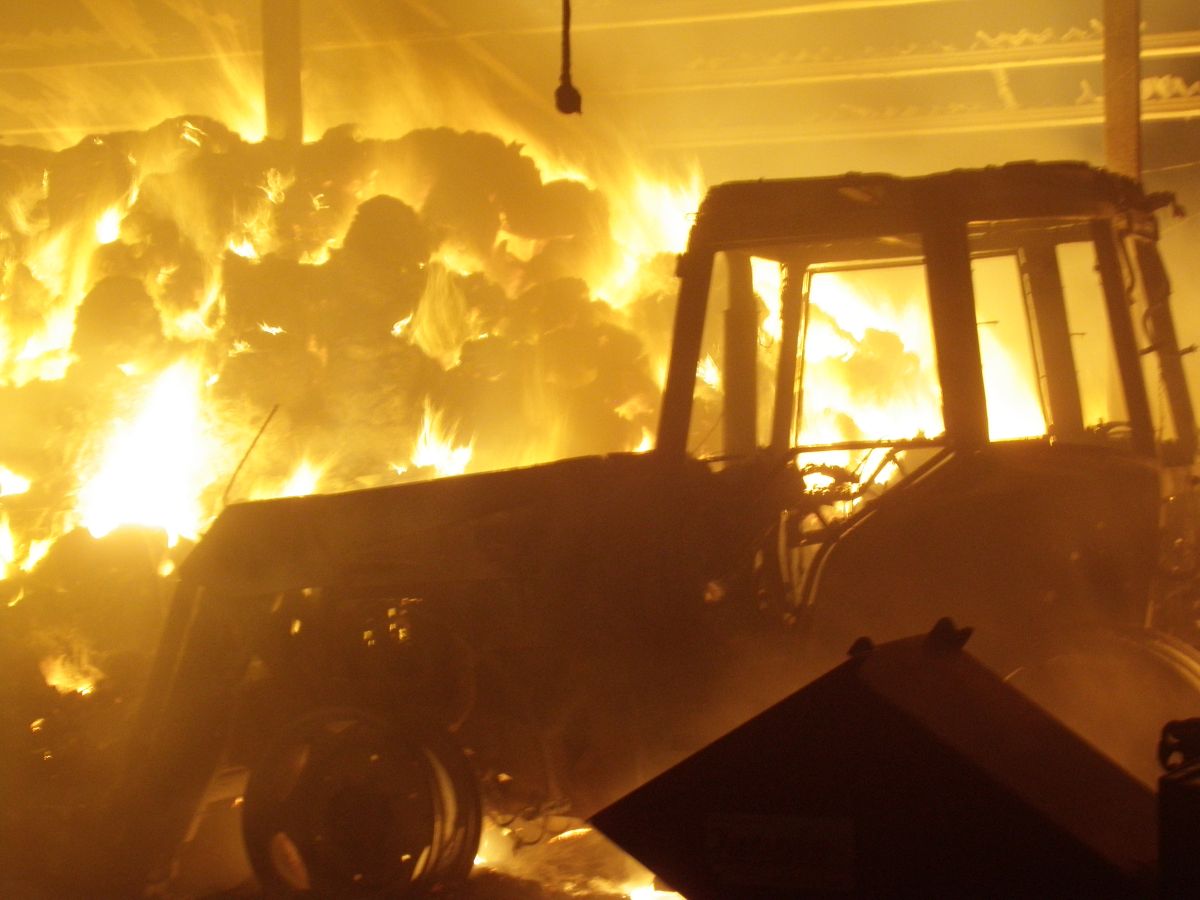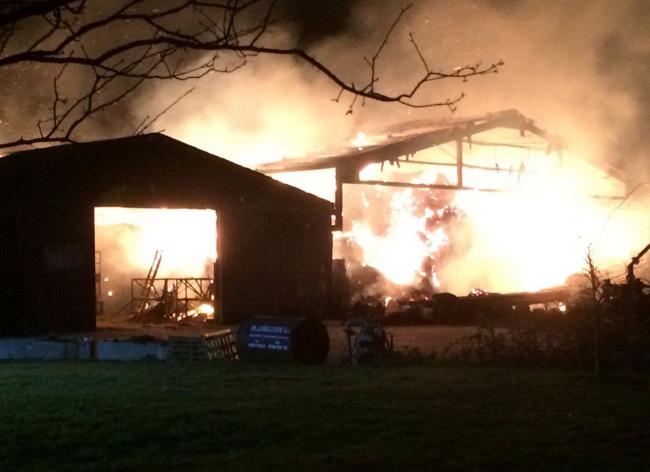
Over the last few weeks there have been several barn fires across Somerset.
Avon and Somerset Constabulary and Devon and Somerset Fire and Rescue investigations have led a conclusion that the fires have been down to deliberate acts of arson.
We are working with our partners at Devon & Somerset Fire & Rescue Service and investigations into these incidents and those responsible are ongoing.
Chief Inspector Mark Edgington, Local Policing Commander for East Somerset, said: "We take incidents of arson extremely seriously.
"They have huge financial implications for farmers in addition to the enormous danger they pose to people and livestock.
"We will work with our partners to identify those responsible and they will be dealt with robustly.

"We want to hear from anyone who has any information about these incidents or any other suspected arson.
"You can call us on the 101 number or alternatively you can call Crimestoppers on 0800 555111.
"We want to prevent any further fires before someone is seriously hurt."
Fire Investigation Officer Andy Justice from Devon and Somerset Fire and Rescue said a fire on a farm can be "devastating"; resulting in the loss of machinery, stores of hay and straw, livestock and the destruction of buildings.
"Every year Devon & Somerset Fire & Rescue Service attend 100’s of fires and emergency incidents on farms and small holdings and a serious fire on a farm can affect the financial stability of even the most well run business.
"Farms are particularly vulnerable to a deliberate fire due to their isolated locations, open boundaries and readily ignitable hay and straw stacks.
Steps to minimise the risk of fire on farms
1. Ensure machinery is well maintained and serviced regularly – clean machinery regularly to keep it free from hay, straw, oil and grease.
2. Remove hay and straw from fields as soon as possible after harvesting. Ensure it is dry before storing to prevent spontaneous combustion – many fires are caused by storing damp or wet hay.
3. Store hay and straw away from other buildings especially those containing fuels or chemicals and separate from livestock. Store in stacks at least 10 metres apart and ensure there is sufficient space between the top of the stack and the roof lighting.
4. Only carry out hot work, i.e. welding or grinding, in clear areas.
5. Electrical safety checks should be carried out regularly, especially in areas where straw or hay is stored.
6. Ensure any fuels, chemicals and hazardous materials are stored in clearly labelled containers. They should be locked away in locations away from other buildings.
7. Have designated areas for smoking away from combustible materials and ensure cigarettes and matches are extinguished properly.
8. Keep escape routes clear at all times and keep all areas free from rubbish, oily cloths and other combustible materials.
9. Ensure that your family and employees know what to do in the event of a fire; make sure everyone knows where the nearest phone is. Carry a mobile phone at all times, especially if working alone.
10. Keep firefighting equipment in good working order and ensure it is serviced regularly. Ensure it can be accessed easily at all times and that everyone is aware where it is located.
11. Make sure that the entrance to your farm is clearly sign posted and keep all access routes clear for emergency vehicles.
